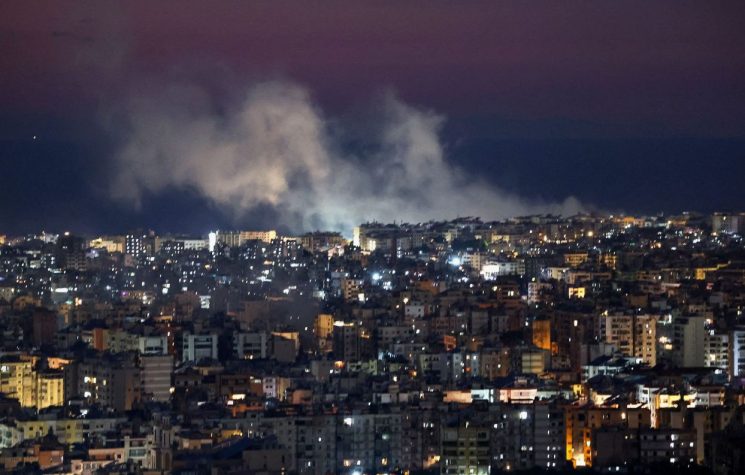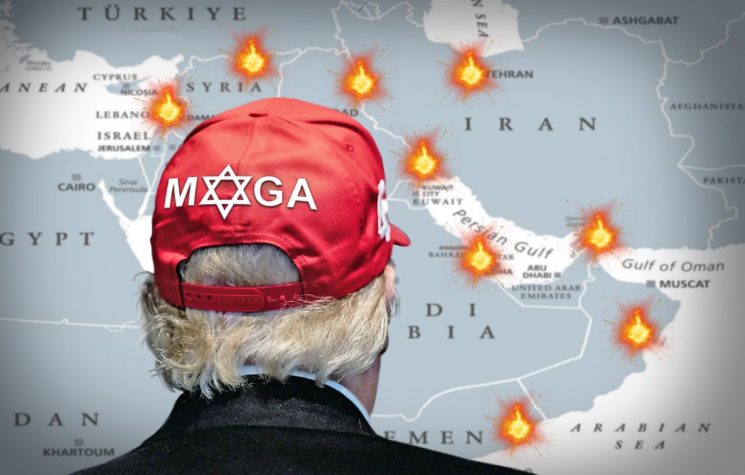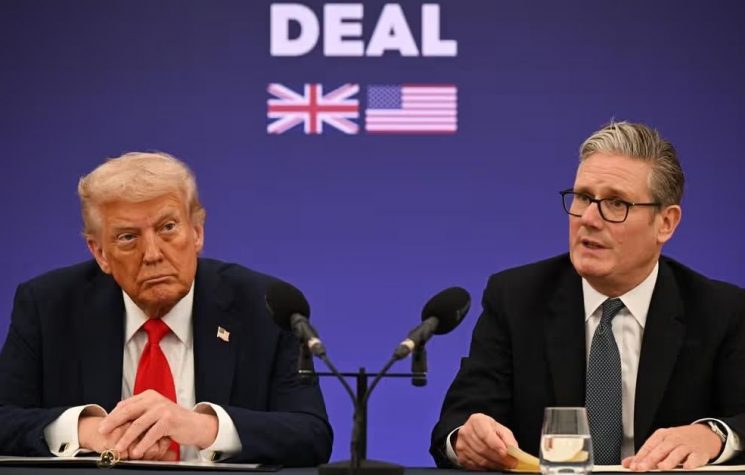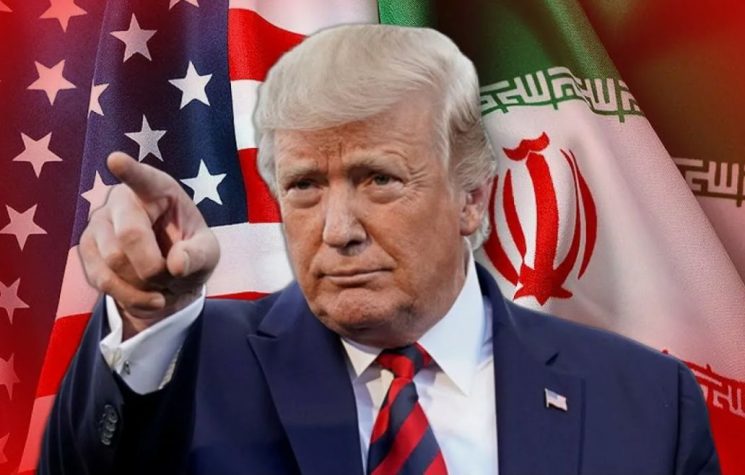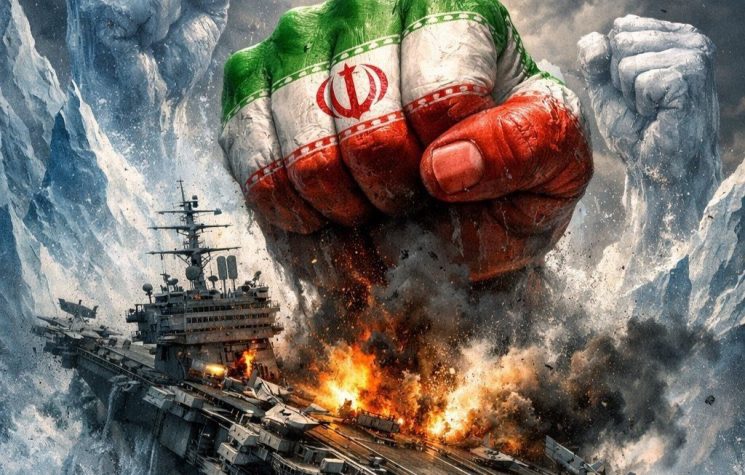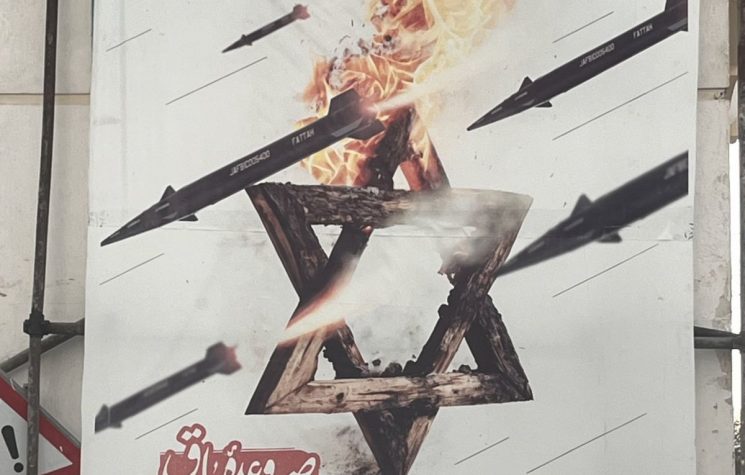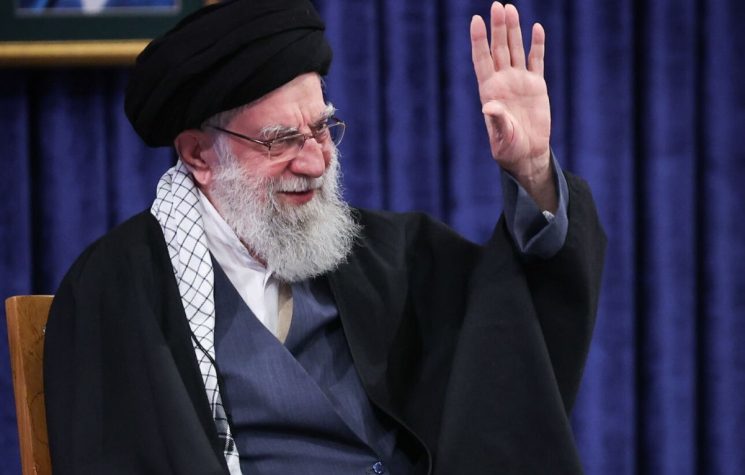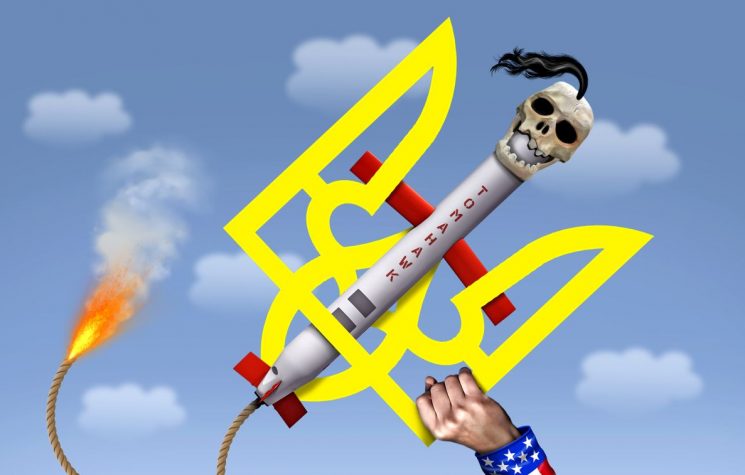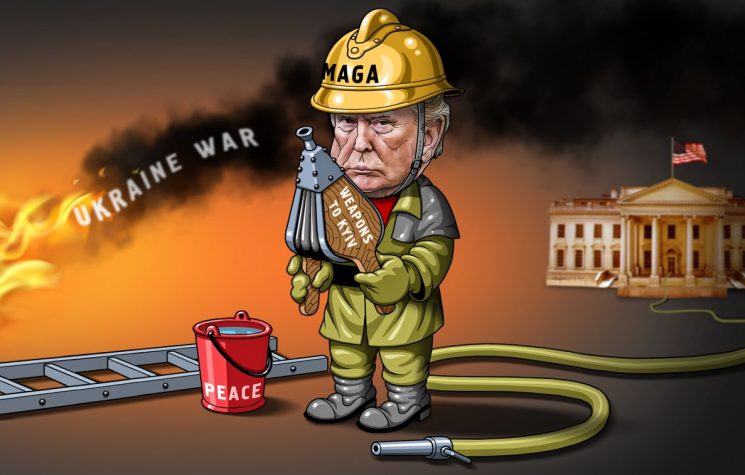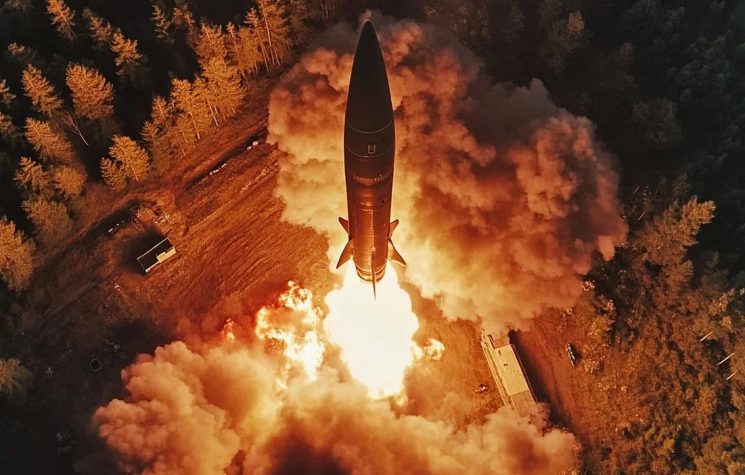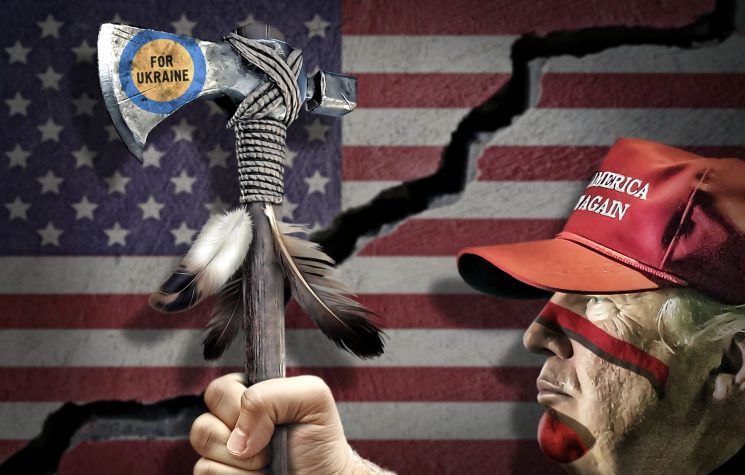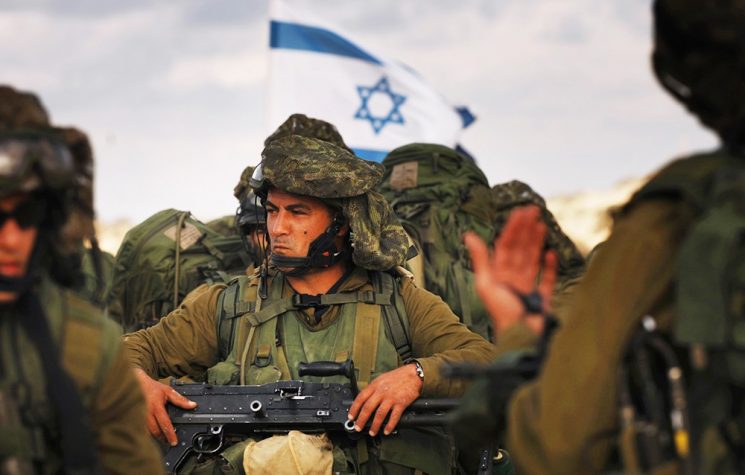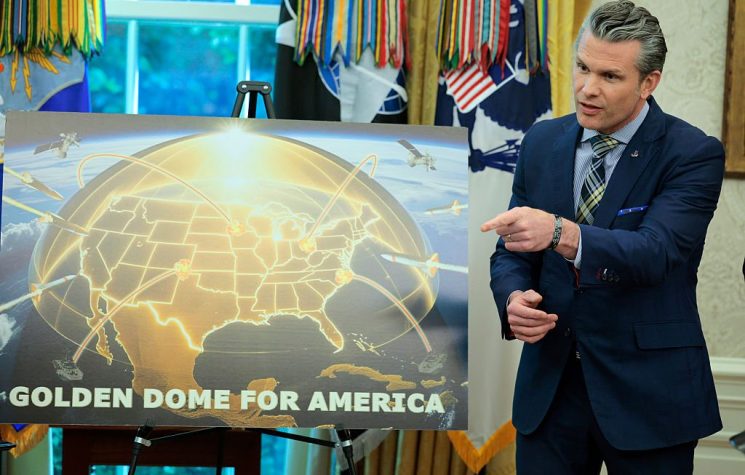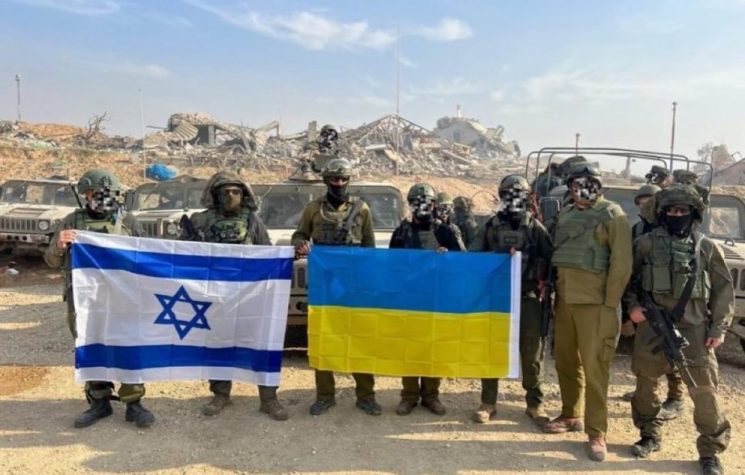In any conceivable scenario, the war—driven by the irreconcilable enmity between the two sides—will persist until one is utterly annihilated. Neither side will ever surrender.
Join us on Telegram![]() , Twitter
, Twitter![]() , and VK
, and VK![]() .
.
Contact us: info@strategic-culture.su
After the U.S. bases in Qatar and Iraq, during the evening hours of June 23 and the early morning hours of June 24 (local time), became intimately acquainted with Iran’s missile program, Donald Trump suddenly developed an unbearable urge to secure a Nobel Peace Prize for himself next year. The warmongering hawk Trump, literally overnight, transformed into a gentle dove of peace. Though with an olive branch in his beak, the American president still managed to tweet the good news of a ceasefire to the entire planet.
Shortly after Iran’s missile strikes on the American bases at Al Udeid in Qatar and Ain al-Asad in Iraq, Trump posted the good news on his Truth Social/X profile:
“THE CEASEFIRE IS NOW IN EFFECT. PLEASE DO NOT VIOLATE IT.”
– Donald J. Trump, President of the United States
Soon after his boss’s tweet, Republican Buddy Carter rushed to nominate him for the highest honor any true peace advocate could hope to receive. But alas, Ukrainian MP Oleksandr Merezhko, who had nominated Trump for the peace prize back in November of the previous year, decided that very same day—June 24—to withdraw that nomination, disappointed by the lack of progress in peace talks between Russia and Ukraine, one of the most important promises made by the current U.S. president. Thus, on the very same day, Trump was both nominated and de-nominated for the Nobel Peace Prize, and left stranded in some imaginary space between unearned recognition for peace and fully deserved credit for war.
If the reports by Reuters, AP, and The New Yorker are to be believed, the initiative to establish a ceasefire did in fact come from Trump and his advisers, with visibly shaken Qatar—disturbed by the Iranian missile strikes—mentioned as a mediator. The European Union quickly welcomed the ceasefire but also warned of its fragility. Russian Foreign Minister Sergey Lavrov reiterated Moscow’s principled stance on the necessity of ending hostilities between Israel and Iran, while also expressing caution about the sustainability of the ceasefire. Messages from the Kremlin indicated Russia’s readiness to mediate in the negotiations, though with the caveat that it remained uncertain whether that readiness would be accepted.
From the Kremlin’s pessimism, it is clear that Moscow is fully aware that Iran—after the sudden and massive Israeli attack on June 13, which occurred just two days before a scheduled new round of indirect Iran-U.S. diplomatic talks in Muscat, Oman—can no longer trust any Israeli-American promises or guarantees. The readiness of Netanyahu and Trump to use so-called diplomatic initiatives—more precisely, cunningly devised deceptions—as a weapon in their military conflict with Iran is both evident and undeniable. Throughout all this, Iran certainly does not question the credibility of Russia and Oman as mediators. Tehran simply can no longer afford to take seriously any positive signals coming from Washington and Tel Aviv. That is a lesson Moscow had already learned the hard way, long ago.
Beijing issued fairly restrained, carefully worded diplomatic messages of the kind typically used in such situations: it expressed deep concern and called on both sides for immediate de-escalation and dialogue. Chinese officials also invoked the UN Charter and clearly condemned the violation of Iranian sovereignty. Given that silence in Chinese culture is considered a matter of wisdom and restraint, we can assume that China said far more by what it did not loudly express regarding the Israeli-American actions than by what it stated publicly.
On the other hand, analysts from the Middle East believe that Trump is using the loose ceasefire as a tool to pressure China and, to a lesser extent, Saudi Arabia. On his Truth Social/X profile—which must be said has gained notorious global fame—Trump addressed the Chinese with this cynical and scornful remark:
“China can now continue to purchase Oil from Iran. Hopefully, they will be purchasing plenty from the U.S., also.”
Is the blackmail not obvious?
Official Tehran is as ambiguous about Trump’s ceasefire as Israel is about its nuclear arsenal. While Iranian President Masud Pazeshkian sees the truce as an opportunity to protect Iran’s interests, more conservative analysts quite justifiably view the current ceasefire as yet another Israeli-American ploy. Let us recall that Israel used the diplomatic talks in Oman as a smokescreen to launch a surprise attack on an unprepared Iran. After that, Trump himself attempted to deceive and catch Tehran off guard. He first announced that he would “give Iran one more chance” and that he would consider a possible U.S. military strike on Iran over the next two weeks. But in the early morning hours of June 22, Iranian local time, he ordered the execution of a previously well-planned and thoroughly prepared attack on Iran—a massive operation that involved not only Northrop B-2 Spirit stealth bombers but also a large number of aerial refueling planes, reconnaissance aircraft, and even one submarine.
Whose assessments within Iran, then, are more accurate—the conservatives’ or the reformists’? Is the ceasefire truly in Tehran’s favor? If we take into account the fact that the Israeli-American coalition is doing everything possible to silence Iranian conservatives, including systematically assassinating them one by one—along with their families, neighbors, and other innocent civilians—then these criminal efforts by Tel Aviv and Washington can be interpreted as proof of the soundness and justification of the conservatives’ deep distrust.
With all due respect to the peace-loving and noble Iranian President Pazeshkian, the fact that the Zionists have so far not attempted to assassinate him could be taken as a clear sign that his assessments and analyses are not as dangerous to the Israeli-American coalition as those of the Iranian conservatives. Still, we will try to find a golden middle ground between these two seemingly irreconcilable viewpoints.
* * *
Israel, facing daily Iranian attacks on its cities, has begun to suffer increasingly devastating blows, which have started to cause serious political damage to Netanyahu. Despite more-than-dubious public approval polls—undoubtedly part of the overall war effort, that is, war propaganda—there is no doubt that images of destroyed Israeli cities will, in the long run, haunt Netanyahu’s political career, which is already in its twilight.
Let us pause for a moment and try to place ourselves in the shoes of ordinary Israelis. Until June 13 of this year, Israeli citizens were living normal lives, going to work, relaxing, socializing as usual, and since it was summer, they were likely more relaxed than usual—perhaps on vacation, or simply spending more time in outdoor cafés. Then, suddenly and in their name, 1,600 kilometers away, by the order of none other than Netanyahu himself, their country massacred two dozen generals and nuclear scientists of a sovereign nation, along with hundreds of innocent civilians.
In response to that war crime came a horrific Iranian retaliation that never needed to happen—Israeli cities were leveled to the ground, while Israeli civilians were forced to trade the summer terraces of cafés for damp, dark shelters. Today, Netanyahu could hardly walk the streets of Tel Aviv or other Israeli cities with his head held high to chit-chat with random passersby—certainly not without several rings of personal security surrounding him.
For Netanyahu—a ruthless Machiavellian politician who has previously used the provocation and indefinite prolongation of regional conflicts as a means of staying in power—the images of destruction in Israeli cities flooding social media, and which could no longer be swept “under the rug,” held propaganda potential that simply had to be exploited. Thus, Israel—the state that initiated an aggressive war against Iran—tried to present itself to the Western public as the “victim.” At the same time, it sent an unmistakable message to that same collective West: that it was obliged to immediately open the floodgates and direct generous streams of financial, material, medical, and military aid toward Israel.
Netanyahu’s personal cost-benefit analysis of the war he started with a failed attempt to knock Iran out is, however, quite different. With every Iranian missile fired at Israel, the long-term projection parameters of Netanyahu’s political approval rating were being directly shattered. Netanyahu doesn’t know it yet, but he is already politically dead. On some intuitive level—and given that he is highly educated—he must be aware of the fates of other wartime prime ministers in different times and places. Much like what happened to Churchill, Netanyahu will forever remind Israelis of the unimaginable horrors of war with Iran—destruction they will, along with him, wish to forget as soon as possible. In that sense, paradoxically, it may be a better option for Netanyahu to continue a war that causes manageable damage to his approval rating, rather than face the Churchillian consequences of a lasting peace: the loss of power and a retirement that could lead to multiple legal proceedings against him, both in Israel and abroad.
The same applies to Trump. His political approval rating has also been a casualty of Iran’s retaliatory missile strikes—not just those targeting U.S. military bases, which triggered his urgent and irrepressible need to push for a ceasefire—but also those targeting Israel, to which Trump had previously promised absolute security. At this point, it is still too early to assess how the Israeli-American coalition’s war against Iran will affect Trump’s political future. According to some polls, 56% of Americans opposed U.S. strikes on Iran. Even worse for Trump, prestigious U.S. mainstream media outlets such as The Washington Post, The New York Times, CNN, and Axios have published analyses and leaked intelligence assessments suggesting that the success of Trump’s airstrikes on Iranian targets was, at best, very limited—if not a very costly failure.
Despite the undeniable indoctrination of the American public with hegemonic and liberal dogmas, the collective mindset still retains a capacity for logical reasoning. The average American, even in the face of strict censorship surrounding military affairs, might reasonably conclude that Iran inflicted very painful blows to U.S. military bases—and that Trump’s sudden dash for a Nobel Peace Prize was, in fact, a damage-control strategy—for rather extensive damage.
Nevertheless, despite the enormous influence the Jewish lobby, via AIPAC, exerts on Congress and on Trump himself, Trump—who cannot run for a third term and will retire after completing his presidency—has little incentive to continue a direct war with Iran. He may come under pressure from the war-hawkish wing of the MAGA movement, but within his closest circle, resistance is growing toward this and any other wars the U.S. might start.
What is absolutely certain is that the U.S. will use the ceasefire to provide massive military aid to Israel, whose air defense capacities are currently severely depleted and compromised. So, both Israel and the U.S. will continue full-speed preparations for a renewed war against Iran, regardless of whether it involves direct American military participation or not. There is no doubt that Israeli and American military planners, analysts, and intelligence operatives are already devising a new act of war cunning that will attempt to surpass the bloody and notorious “success” of the massive attack on Iran carried out on June 13 of this year.
Islam is a highly rational religion based on logic. In the Qur’an, Allah (azwj) frequently calls on believers to use their reason (*‘aql*), to think and carefully observe the world around them. This tells us a lot about how the Islamic Republic of Iran is likely to use the current ceasefire. First and foremost—and as we have already concluded—Tehran will never again lower its guard in dealings with Tel Aviv and Washington.
Iran does not trust this ceasefire and understands that Israel and the United States will use it to better prepare for the continuation of war—primarily by strengthening and restoring Israel’s air defense systems. Pragmatic Tehran will respond to this by accelerating the production of precisely those missile systems that have proven most effective in penetrating Israeli defenses.
At the moment, Iran’s air defense is in poor shape, and it will therefore have to address this issue swiftly and energetically—by acquiring significant air defense assets, both domestic and possibly Russian or Chinese—along with mobilizing and rapidly training personnel.
However, Iran is geographically a much larger country than Israel. At first glance, this may not seem like a particularly important fact, but in geopolitical and military terms, it is crucial. No matter how intense, massive, and well-organized Israeli air and missile strikes against Iran may be, their overall impact is diluted, weakened, and absorbed by Iran’s vast territory. By contrast, any large-scale Iranian attack on Israel—given Israel’s small size—inflicts deep scars and causes considerable damage and casualties due to the concentration of effects in a relatively limited area. Israel’s population density is 445 people per square kilometer, while Iran’s is only 54–that says a lot.
When hostilities resume—and it’s only a matter of time before that happens—the key factor in the overall balance of power between Israel and Iran will be the interplay between the capabilities of Israel’s rebuilt air defense to intercept and destroy Iranian missiles, and the capabilities of Iran’s replenished and reinforced missile forces to effectively penetrate Israel’s defenses. However, as before, Iran will continue to expend its older and less effective missile stockpiles to wear down Israel’s air defenses, only to later strike painful and precise blows with its most advanced, primarily hypersonic missile systems.
Likewise, in the final phases of its larger attacks—once Israel’s air defenses have been exhausted and fall silent—Iran could carry out mass drone assaults using destructive UAVs, while the first wave would consist of numerous cheap decoy drones designed to deplete Israeli defenses as efficiently as possible.
One of the worst things Iran could do to Israel would be to introduce total randomness in the patterns of its attacks: no one would ever know when the attacks might come, what means would be used, how many waves there would be, or what their targets might be. Such a fluid tactic would almost certainly prove highly effective, and it seems that Iran has already begun to implement it to some extent.
A trend that should deeply worry Israel is that, as time goes on, Iran will increasingly use faster and more advanced missiles, having depleted its stocks of older and less effective ones—this is something Netanyahu’s team should have considered before launching its attack on Iran.
Furthermore, Iran had a full two weeks to thoroughly test all its missiles and will no longer waste time producing systems that aren’t effective enough. Finally, Tehran has had the opportunity to study Israel’s air defense systems very closely and has likely identified numerous vulnerabilities, as well as ways to electronically jam them.
There is no doubt that during this deceptive ceasefire, Tehran will significantly intensify and expand security operations within Iran itself, focused on dismantling the Mossad’s intelligence and operational network, which has been largely uncovered over the past two weeks and now faces an unpleasant fate—especially considering its active involvement in the destruction of Iranian air defense systems and exposing the country to devastating Israeli air strikes. In its confrontation with internal traitors, Iran will show not the slightest mercy.
Iran will also launch large-scale preventive military-security operations, involving significant forces, against separatist militias and terrorist groups such as the ultra-leftist “People’s Mujahedin” of Iran (PMOI/MEK), the Baluch separatists from “Jundallah”, Jaish al-Adl (“Army of Justice”), the Kurdistan Free Life Party (PJAK), and others. Both Israel and the U.S., as well as other Western powers, are connected with these terrorist groups, which is why Tehran will show them no mercy either. For all these groups, the situation will become far worse than it has ever been before.
Finally, it is very likely that Iran will implement a partial mobilization and initiate some form of wartime production, possibly introducing curfews in certain areas.
I will not focus here on one of Iran’s most characteristic abilities—its capacity to conduct highly successful asymmetric warfare campaigns. Those covert operations will continue as before, possibly with slightly increased intensity. However, it is more likely that Tehran will focus on dealing with internal enemies, producing its most effective missiles, and rebuilding air defense systems, as these are matters of the utmost urgency and importance.
Naturally, Iran will aim to consolidate internal forces, promote and strengthen national unity, and further enhance its soft power. The extent and nature of the upcoming strengthening of Iran’s alliance with Russia and China will depend on the next steps taken by Moscow and Beijing, though most of the details of those agreements will almost certainly remain out of public view.
Trust has been permanently broken. Tehran no longer believes in any diplomatic negotiations with Tel Aviv or Washington—regardless of the mediator. The deceptive ceasefire will almost certainly be violated frequently and is likely to last only as long as Israel needs to rebuild its air defenses.
In any conceivable scenario, the war—driven by the irreconcilable enmity between the two sides—will persist until one is utterly annihilated. Neither side will ever surrender.
All responsibility for such grim forecasts—which could easily lead us into a Third World War—lies with Israel, or more precisely, with its current Prime Minister: a Zionist war criminal and perpetual warmonger who has spent the last thirty years deceiving us about the supposed threat Iran poses to regional and global stability, while in fact, he himself is one of the greatest curses the Middle East has ever seen.










